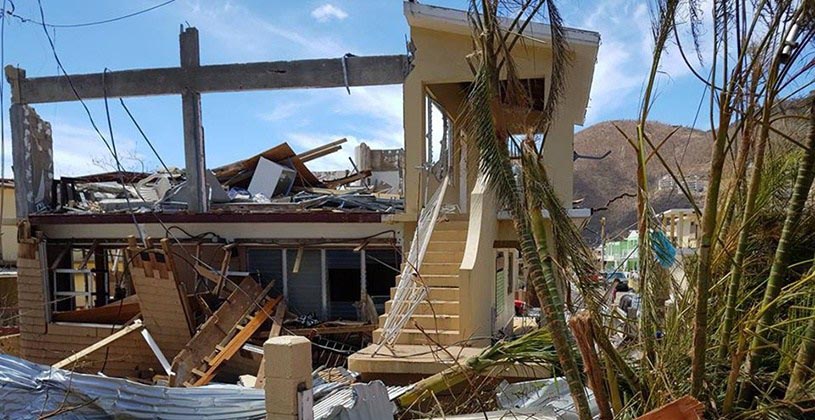The Caribbean Development Bank (CDB) has approved US$29 million in funding to Antigua and Barbuda and US$65.5 million to the British Virgin Islands (BVI) to aid recovery efforts after the passage of hurricanes Irma, Maria and Jose in September.
In press releases on Thursday, the CDB noted that Hurricane Irma lashed Antigua and Barbuda as a category five hurricane. In Barbuda, the hurricane ruined housing, crops, livestock and fishing vessels, and also severely hit the island’s water supply.
The release said that the project has several components. Planned infrastructure works include:
* reconstruction of 11km of road, and repair of a bridge, along with associated drainage works;
* reconstruction and rehabilitation of education institutions in both Antigua and Barbuda and construction of teacher accommodation in Barbuda;
* rehabilitation of the desalination plant and water storage facilities in Barbuda; and
* the upgrade and rehabilitation of agriculture and fishing infrastructure.
Other components include a redevelopment plan and policies for Barbuda, capacity building initiatives and engineering consultancy services.
The release said that the CDB had previously provided a US$200,000 Emer-gency Relief Grant and an Immediate Response Loan in the amount of US$750,000 to Antigua and Barbuda following the passage of Hurricane Irma. In addition, the Bank has approved a loan of US$11.8M to assist the Government in meeting its financial obligations to external partners.
Observers say the loan components may raise concern about the amount of debt Antigua and Barbuda and the BVI are taking on.
As it relates to the BVI, Daniel Best, Director, Projects Department, CDB stated in the press release, “The Government of the British Virgin Islands’ preliminary assessment report estimates USD3 billion in damage and losses—the equivalent of three times the annual gross domestic product, from the passage of Hurricane Irma.”
“This project is a reflection of our commitment to providing and mobilising resources for recovery and reconstruction, and to improve climate resilience and socially inclusive infrastructure and institutions in our Borrowing Member Countries,” Best added.
The release said that the Rehabilitation and Reconstruction Project aims to bolster the socio-cultural and economic preparedness and resilience of the population of the BVI to future climate-related hazards, while aiding the population in re-establishing sustainable livelihoods. The CDB said that the project will be supported through a US$65.2 million loan and a US$300,000 grant. It comprises several components, including:
* rehabilitation and rebuilding of critical climate-resilient social and economic infrastructure;
* upgrade/reconstruction of 3.9 kilometres of roads;
* construction of around 3.9 km of coastal defences;
* construction/upgrade of 12 educational institutions and recreation facilities;
* repair of nine public infrastructures;
* rehabilitation of 10 water and sewerage installations;
* supply of information and communication technology equipment and other resources for 29 institutions; and
* training of 80 persons in extending psychosocial support services.
In October and November 2017, CDB cleared three Immediate Response Loans on “highly concessionary terms”, totalling US$2.25 million and an Emergency Relief Grant of US$200,000 to the British Virgin Islands after the passage of Hurricanes Irma and Maria, and Tropical Storm José, the release said.

